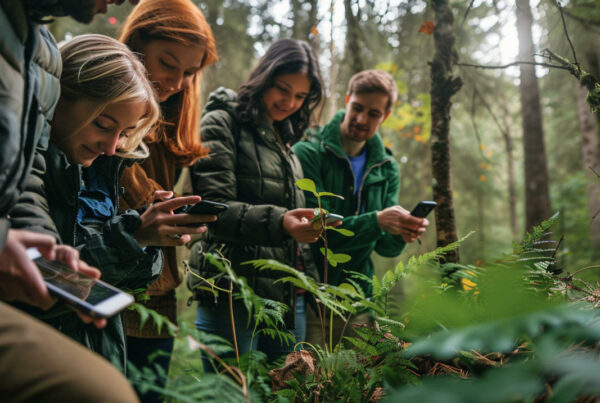AI chatbots like ChatGPT, Perplexity, Claude and Gemini are completely transforming how people plan and book their trips.
They’re the digital travel agents of the future, available 24/7, ready to answer any question, find the best deal, and handle logistics in seconds. The process of searching, comparison and research that once took hours now can result in a booking in a few quick messages.
This isn’t the future coming; it’s already here as the ChatGPT and AI travel booking statistics and trends I detail below demonstrate.
Instead of juggling multiple tabs and booking sites, savvy travellers are turning to chat-based tools that do it all for them. These AI assistants remember preferences, predict what you’ll like, and adapt in real time. They make travel booking feel more human again, offering personalized recommendations without the overwhelm of endless choices.
For tourism and travel businesses, chatbots are becoming essential. They reduce customer service costs, increase bookings, and respond instantly when travellers are ready to buy. Whether you run a retreat, a hotel, a tour company, or a travel agency, adding an AI layer is now the difference between staying ahead and getting left behind.
Mobile-first travellers expect simplicity. They want to research, book, and confirm everything from their phones without long email chains and PDF itineraries. AI-powered chat flows create that seamless experience, boosting conversions while keeping the process effortless for the traveller.
Chatbots aren’t replacing people; they’re helping travellers connect better with the right experiences. As they learn to understand intent, tone, and emotion, the line between human and machine support continues to blur in the best possible way.
1. 40% of travellers globally use AI-based tools for travel planning and booking
About 40% of global travellers now use AI tools during their trip-planning process. This includes chatbots, itinerary generators and recommendation engines that help narrow down flight, hotel and activity choices. For many travellers, AI simplifies what used to be a tedious process of comparing dozens of sites.
Younger generations are leading this trend. Millennials and Gen Z travellers use AI for travel planning at rates as high as 60%, showing how normal this technology has become for digital-native consumers. Older generations are catching up as platforms make AI tools easier and more trustworthy to use.
For travel and retreat businesses, this shift means travellers now expect smart digital assistance. Offering AI-powered booking support on your website can improve conversion rates and streamline customer communication before a trip.
Source: Travala.com
2. AI in tourism market valued at USD 3.37 billion in 2024 (USD 13.87 billion by 2030)
The market for AI in tourism is growing fast. Valued at around USD 3.37 billion in 2024, it’s projected to hit nearly USD 13.9 billion by 2030 with an annual growth rate of about 26.7%. That expansion shows travel companies are adopting AI across booking, marketing, pricing and customer experience.
Travel brands are using machine learning to predict demand, optimise prices and offer personalised deals. Startups and major OTAs alike are embedding AI into their customer journeys to stay competitive. The numbers reflect not just tech enthusiasm but measurable business outcomes.
For travel entrepreneurs, the takeaway is clear: integrating AI into the customer experience is becoming a necessity. Those who embrace it now will likely see higher efficiency and better traveller satisfaction.
Source: Grand View Research
3. 65% of travellers now prefer brands that use AI to personalize their experiences
Travellers increasingly value brands that understand their preferences. About 65% say they prefer booking through companies that use AI for personalisation, such as tailored recommendations or dynamic pricing. AI helps these businesses act like attentive travel advisors instead of generic booking platforms.
Personalization builds trust and loyalty, especially among repeat travellers. By suggesting destinations, hotels or activities that match past behaviour or stated interests, AI creates a sense of being seen and understood. That human-like touch through data makes a strong impression.
For anyone running retreats or group trips, this insight highlights how valuable personal data can be. The more personalised the booking and follow-up, the more likely travellers are to book again.
Source: WiFi Talents
4. Around 48% of travellers have used AI chatbots for travel assistance
Nearly half of travellers globally have interacted with an AI chatbot for help before or during a trip. Chatbots now handle simple booking steps, customer-service requests and itinerary support, freeing staff for complex cases.
The main appeal is instant response. Travellers appreciate that chatbots answer questions 24/7 about flights, hotel policies and rebookings. Many report satisfaction rates similar to talking to a human agent, provided the chatbot gives accurate information.
Businesses using chatbots also benefit from reduced operational costs and faster handling times. For tourism business owners and customer experience teams, this means less manual messaging and more focus on creating transformative experiences.
Source: WiFi Talents
5. 65% of travel industry leaders view chatbots as the most significant AI application
Around 65% of executives in the travel industry identify chatbots and virtual assistants as the most impactful use of AI. These tools are streamlining booking flows, customer service and internal operations, allowing smaller teams to serve larger audiences.
This perception comes from measurable ROI. Chatbots cut costs, improve conversion rates and boost customer satisfaction through consistent, fast communication. They’re now seen as essential infrastructure for modern travel brands.
For coaches and consultants serving travel companies, positioning chatbots as a scalable support solution is a smart strategy. It helps clients focus on experience delivery rather than repetitive admin tasks.
Source: AIMultiple Research
6. 80% of travellers are open to using AI for planning and booking
A recent Statista survey found that 80% of travellers are open to using AI for trip planning and booking. This openness suggests consumers are past the initial trust barrier and now see AI as helpful, not intimidating.
The top benefits travellers cite are convenience and personalization. Many appreciate how AI reduces research time and simplifies decision-making by comparing hundreds of options in seconds. Transparency and user control remain key factors in satisfaction.
Combining AI assistants with access to live human support can deliver the best of both worlds. It helps businesses balance automation with empathy, ensuring that travellers feel guided rather than left to algorithms.
Source: Statista
7. Tourism businesses need to adopt their own agent interfaces to harness these trends
The travel industry is now moving toward what experts call “agentic interfaces”, which are AI systems that don’t just answer questions but take action. According to research, these next-generation AI agents will plan trips, make bookings, manage itineraries, and handle post-travel support without the user needing to lift a finger.
This evolution goes far beyond today’s chatbots that recommend hotels or flights. These new AI agents will link directly with booking systems, payment processors, and customer databases to handle entire journeys from start to finish. Imagine saying, “Plan me a 5-day hiking retreat in Patagonia under $2,000,” and the AI instantly books flights, lodging, transfers, and insurance.
For travel businesses, this means adapting now to work with these autonomous systems instead of competing against them. The brands that integrate agentic AI early will have a serious edge in efficiency and customer experience. Those who wait could find their bookings handled by someone else’s bot.
Source: PhocusWire
8. 52% of travellers now prefer AI-enabled booking platforms
More than half of travellers say they prefer booking with platforms that use AI for convenience. Features like natural-language search, predictive pricing and instant itinerary building save time and reduce stress.
The preference for AI-enabled systems is tied to speed and simplicity. Travellers expect to plan complex trips without juggling multiple tabs. AI turns that process into a single, guided flow where booking, recommendations and updates happen in one place.
For service providers, this means mobile-friendly AI booking systems are becoming the standard. A simple chatbot or automated flow can turn casual browsers into confirmed bookings with fewer drop-offs.
Source: WiFi Talents
9. AI-driven personalization increases booking conversion rates by 18–25%
Travel platforms using AI personalization have seen conversion rates climb by roughly 18 to 25%. Personalised recommendations and adaptive search results make travellers more likely to book.
AI analyses user preferences, travel history and real-time behaviour to adjust what’s shown. For instance, it might prioritise boutique ecolodges for sustainability-minded travellers or group experiences for retreat seekers.
This performance lift makes personalization one of the most profitable applications of AI in travel. For entrepreneurs building booking funnels or retreat platforms, it’s a powerful case for using data-driven automation.
Source: WiFi Talents
10. AI chatbots handle up to 70% of customer service interactions in travel
AI chatbots now manage as much as 70% of customer service interactions across big travel agencies and airlines. These tools answer FAQs, manage rebookings and send itinerary updates in seconds.
The automation saves both time and cost while ensuring travellers get instant help. Human agents can then focus on complex or emotional cases that require empathy and problem-solving.
For travel entrepreneurs, this shows the potential to scale service quality without increasing headcount. It’s a way to offer round-the-clock support while keeping operations lean and responsive.
Source: Gitnux
The Future of Travel Booking Belongs To AI Chatbots (So You Can Focus On Guest Experience)
AI chatbots are no longer just a novelty in travel, they’ve become the backbone of how people research, plan, and book their trips. They simplify the chaos of endless tabs and travel sites into one smooth conversation that gets results fast without overwhelm and analysis paralysis.
For travel and tourism businesses, AI offers more than automation. It’s an opportunity to connect with customers on a deeper level while freeing up time to focus on the human side of hospitality and transformation. When technology handles the logistics, you can focus on the moments and experiences that change lives.
The data speaks for itself. Travellers are embracing AI at record rates, and companies using it are seeing higher conversions, faster bookings, and happier customers. Chatbots are becoming as essential to travel as search engines once were. Ignoring them now would be like refusing to list your business online twenty years ago.
But they still pull from traditional business platforms with Google Business Profiles, Google Maps and Third-Party Review websites being the most commonly cited online sources by ChatGPT. That’s why an SEO visibility strategy is more important than ever, because it provides the foundation and schema for AI chatbots to talk about your tourism business.
As chatbots evolve, they’ll become even more personalized, capable of learning traveler preferences and predicting needs before people even ask. Imagine a booking assistant that remembers your favorite type of lodging, ideal flight times, and go-to retreat destinations. That’s not a distant dream; it’s the direction the entire travel industry is heading.
If you’re serious about staying ahead in this new era of travel marketing, now is the time to act. AI chatbots aren’t just the future of travel booking; they’re shaping how travellers discover, research, and decide where to go next. Book an AI SEO Consultation with us today and learn how to make your travel brand part of the conversation that defines the next generation of booking experiences.
10 Detailed Statistics
- ~40% of travellers globally are already using AI-based tools for trip planning and booking in 2025. Travala
- ~60% of travellers are open to chatbots/AI assistants in booking or travel management, and ~83% are more likely to book when AI-enhanced services are offered. WifiTalents
- The global “AI in tourism” market was USD 3.373 billion in 2024 and projected to hit USD 13.8688 billion by 2030 (CAGR ~26.7%). Grand View Research
- ~80% of travellers globally say they are open to using AI for planning, booking and experiencing their holiday. Statista
- Chatbots in travel are expected to generate ~USD 1.25 billion in revenue for travel companies by 2025. ZipDo
- ~65% of travel industry leaders view chatbots/virtual assistants as the most significant application of generative AI in their space. AIMultiple
- In travel agencies: chatbots handle “up to 80%” of customer inquiries in some reports; many agencies report improved booking conversion after AI adoption. Gitnux+1
- ~48% of travellers are willing to share personal data with AI for customised experiences. Gitnux+1
- Personalised travel offers (powered by AI) increase repeat bookings; one source says repeat bookings up ~25%. Gitnux+1
- Mobile bookings dominate travel-planning behaviour: 83% of travellers research trips on mobile, ~65% of bookings happen online. Hotel Agio+1
—
AI chatbots are quietly reshaping how we plan and book travel. They’re the digital travel agents of the future, available 24/7, ready to answer any question, find the best deal, and handle logistics in seconds. What used to take hours of comparing flights, hotels, and activities can now be done in a few messages. It’s not science fiction anymore. It’s how millions of travelers are booking in 2025.
The old travel funnel is fading fast. Instead of hopping from one website to another, people are chatting with AI assistants that remember preferences, offer personalized options, and even predict what kind of trip someone will enjoy. These bots are not just about convenience. They create a more human-like experience that feels tailored rather than transactional.
For travel businesses, this shift is massive. Chatbots don’t just improve customer service—they save time, cut costs, and boost bookings. From airlines to boutique retreats, companies using AI assistants are reporting faster response times and higher satisfaction rates. Automation is no longer a nice-to-have. It’s the new baseline for running an efficient travel business.
Consumers also expect this level of convenience now. When travelers can get an instant quote, book a flight, and reserve an eco-lodge all within one chat, traditional booking methods start to feel outdated. Mobile-first travelers especially value speed, personalization, and flexibility—all things AI chatbots deliver better than any manual process.
The rise of AI in travel isn’t just about efficiency. It’s about connection. The best chatbots are learning to understand tone, emotion, and intent, creating interactions that feel natural and intuitive. Imagine your own virtual travel assistant that knows your favorite hiking destinations, dietary preferences, and sleep schedule. That’s the level of personalization becoming possible today.
The question isn’t whether AI will take over travel booking—it already has. The question is whether you’ll use it to your advantage or fall behind. For travel entrepreneurs, coaches, and retreat leaders, this is the time to integrate automation into your booking process and customer experience. The future traveler expects smart, seamless interactions, not email chains and PDF itineraries.
7. 64% of travellers would use an AI assistant during their trip
A study by Amadeus shows that 64% of travellers would use an AI travel assistant mid-trip to get updates or local recommendations. The same report found that about a quarter of users faced frustrations, such as incorrect suggestions or poor connectivity.
Travellers expect convenience and reliability. They want AI to handle rebookings, local info and translation on the go. The challenge for providers is maintaining accuracy and integrating human backup when needed.
Source: Amadeus
- ChatGPT & AI Chatbots Travel Booking Statistics & Trends [2025] - October 27, 2025
- 7 Ways Travel SEO Is Changing in the Age of ChatGPT - October 17, 2025
- 10 Reasons Why Most Retreats Don’t Make Money (And How to Fix Them) - August 8, 2025


![ChatGPT & AI Chatbots Travel Booking Statistics & Trends [2025]](https://www.mindfulecotourism.com/wp-content/uploads/2025/10/booking-a-trip-to-paradise.jpg)


